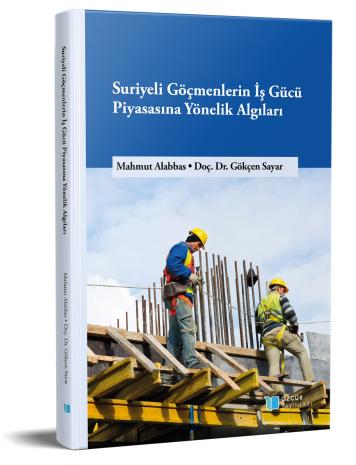
Suriyeli Göçmenlerin İş Gücü Piyasasına Yönelik Algıları
İndir
Özet
Genellikle göç ve özellikle emek göçü, dünyada pek çok ülkeyi etkileyen ve uluslararası, bölgesel ve ulusal politika gündemlerinde üst sıralarda yer alan önemli bir küresel olay olarak ortaya çıkmıştır. Bir yandan, sınır ötesi göç hedef ülkelerde büyüme ve gelişmeye katkıda bulunurken diğer yandan sınır ötesi göç birçok olumsuz sonuçlara da yol açabilmektedir. Pek çok göçmen işçi, özellikle düşük vasıflı işçiler, kötü çalışma koşullarına ve düşük ücret şartlarına maruz kalmaktadırlar. Politikacılar, göç hareketliliğinin olumlu ve olumsuz yönleri ile birlikte, hem göçmenlerin ve göçmen işçilerin yarattıkları etkiler konusunda hem de barındıran toplumun tepkileri konusunda büyük bir meydan okuma ile karşı karşıyadır.
Suriye'de halk ayaklanmasının başladığı Mart 2011 tarihinden yaklaşık bir ay sonra Türkiye'ye ilk Suriyeli göçmen akını gerçekleşmiştir. Türkiye, başından beri Suriyeli sığınmacılara açık kapı politikası uygulayacağını ilan etmiştir. Ancak o dönemde Türkiye kamuoyu ve yetkililerinde, Suriye'deki olayların çok uzun olmayan bir sürede sona ereceği ve Suriyelilerin ülkelerine döneceği beklentisi hakimdir. Süreç içinde Suriye'deki ayaklanma iç savaşa dönmüştür ve güvenlik ortamının bozulmasına bağlı olarak sığınmacı akını artarak devam etmiştir. Buna bağlı olarak Suriyeli göçmenlerin kalıcı yerleşimi Türkiye tarafından aktif olarak desteklenmiştir.
Suriyeli göçmenlerin Türkiye’de kalıp kalmayacağı ve Türkiye işgücü piyasasına entegre olup olmadığı büyük bir tartışma konusu olmuştur. Bu nedenle, bu araştırmanın temel konusu “Suriyeli Göçmenlerin Gaziantep İşgücü Piyasasına Yönelik Algılarının Analizi” olarak seçilmiştir. Ayrıca bu çalışma, Gaziantep ilinde ikamet eden Suriyeli göçmenlerin çalışma hayatlarına ilişkin yapılan anketinin ana bulgularını sunmaktadır.
Analiz sonucunda, ankete katılan göçmenlerin medeni durumları, yaşları, Suriye’de yaşadıkları bölge (kır, kent), Türkiye’ye gelme zamanları, Gaziantep ilinde yaşama süreleri, eğitim durumları, işveren uyruğu ve gelir düzeyleri ile çalışma hayatlarında karşılaştıkları sorunlar arasında var olan bağlantı veya nedensellikler ortaya konmaktadır.

